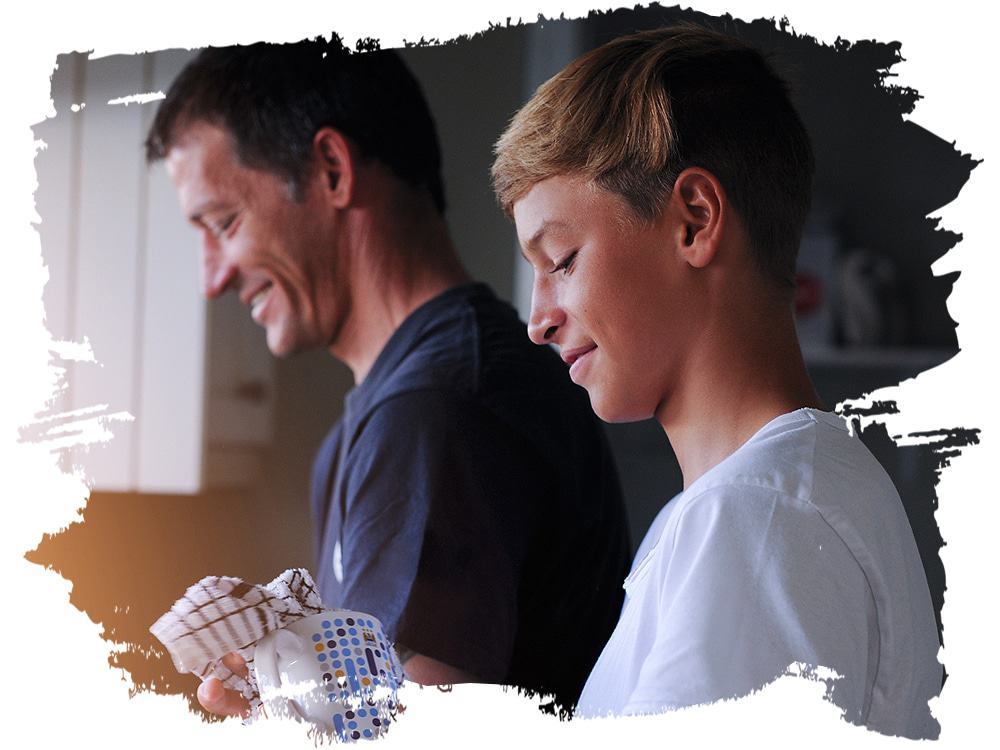Once a parent... Always a parent
During adolescence, your relationship with your children changes. Little by little, you can feel your teens beginning to fly away from the family nest. Many teens become more secretive, and their friendships take on more importance. All this may have you wondering if you still have a place in their lives.
The answer is yes! Parents are crucially important during the teen years. The experts say so and teens agree: Parents of teenagers carry weight!
The family home is typically the main place where children and teenagers are raised. Parents can have a positive influence on the development, physical and mental health, and well-being of their teens. Teenagers who benefit from a lot of support and guidance at home are also less likely to:
- smoke;
- binge drink (more than 5 drinks at a time);
- use drugs;
- have sex for the first time at a young age (before age 15);
- have high levels of psychological distress.
The parents’ role is all the more important during transitional periods or changes (for example, starting high school, parents separating, declining grades, moving, etc.). Your teen is likely to learn a lot from these events, but they may also be in need of more support from their parents.
Regardless of the family type (two-parent, single-parent, blended, etc.), teens need support from their parents. Of course, you will need to adjust your parenting as you go along, because supporting and guiding your child does not mean the same thing at age 3, age 12, or even age 17.
Did you know...
Nearly eight in ten (78%) teenagers feel they get a lot of support from their families (affection, help and interest).
What is my role?
As a parent, you are not expected to be perfect, but you are a role model for your teen.
That means you need to be aware of your own attitudes, values, habits, and behaviours, and think about what you want to pass on to your teenager. This is especially important as your teen is likely to confront you about many of your thoughts and opinions… it is best to be ready!
During day-to-day life, parents are faced with the challenge of maintaining a loving atmosphere, harmonious relationships, and good communication.
Talk to your teen, show them affection, congratulate them, tell them you are proud of what they are doing and of who they are. Offer your help and support and make sure they know you are there for them.
The parents’ role is also to guide and look after their teen
Know their schedule; know where they are and who they are with. Remember that you can always check in with your teen remotely (phone calls, text messages).
Set clear rules and fair, realistic punishments appropriate for your teen’s stage of development. It is a good idea to discuss this with them.
Remember that, as a parent, you are the best judge of what needs to be done and what values to pass on.

In brief
- Support from their parents is important to teenagers.
- Parents can positively influence the development, health, and well-being of their teenager.
- First and foremost, a parent’s job is to pass on values, build a good relationship, and support and guide their teen.
Resources and practical tools
1. For support
If you are dealing with a situation that has you worried, do not hesitate to reach out to a support worker or a health and social services professional:
Latest updates : February 2020








